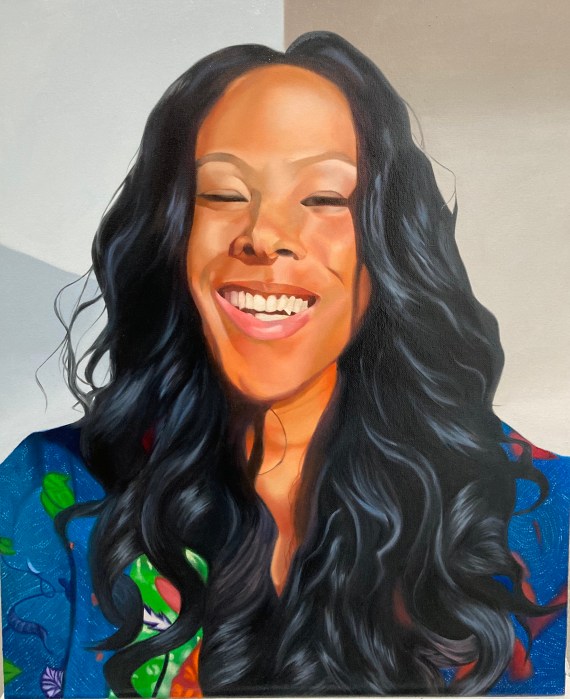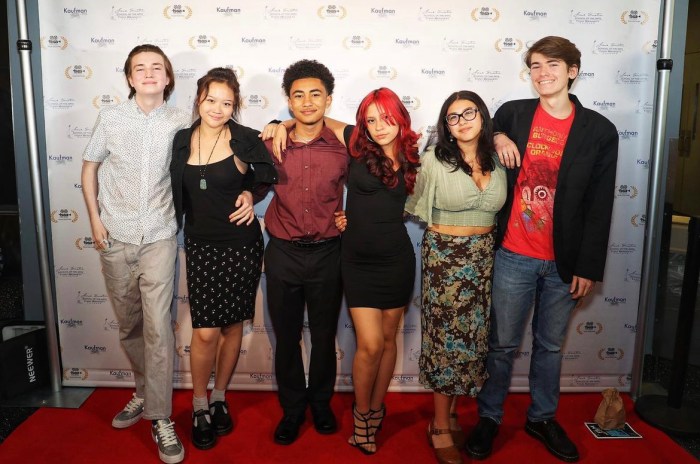She has weighed the balance, seen the good and the bad over more than half a century, come to the conclusion: “This is such a wonderful country.”
At a time when America’s role in the world is in flux — when wall-building is good politics and a U.S. senator decries a president’s “coarseness” and then quits — maybe it’s the heart of the people more than the officials who make the country seem wonderful to Paula Weissman. There was the Polish immigrant who gave her a first job in a girdle factory. The union-hall Italians who helped her into the restaurant business decades ago. The bus driver in Brooklyn who let her on without the five-cent fare. Resettlement workers on 103rd Street. The cohort of neighbors, doctors and friends who today check on her in her Upper West Side basement apartment.
“I always found some people who are humane,” she says.
Did it start with the Americans she met as a young girl after the Second World War, looking for a way out of the landscape of horrors all around her? A jeep stopping for this Holocaust survivor’s wavering thumb on the side of a German road. Four black soldiers, berets on their heads and what seemed to be medals on their chests.
“Me go America,” she tried.
“Get in,” they said, starting a journey to Munich and a ship and the Statue of Liberty.
Finding a refuge
What did she escape? For decades in New York she didn’t like to say.
People would remark: “You have an accent.” “I’m from Europe,” she’d respond.
True, sometimes at her waitress job at Fine and Schapiro a young couple might enter, chatting in German, and her hands would begin to shake. She hid them under tables. “I didn’t want to make people think I needed a shoulder to cry on,” she says.
Her husband’s family had fled Franco in Spain. She didn’t tell him the extent of things. Sometimes he mislabeled her as being from Yugoslavia. “I’m Czech,” she’d remind him. “He didn’t pay attention.” She didn’t mind.
But then three years ago, her husband died, and she got sick with cancer. In the hospital, she began thinking about her life, hoping she’d survive. She started going to synagogue, something her un-religious husband hadn’t liked. She began to talk more.
“Now it comes to me,” is the way she describes it. “All this keeps coming out.”
Something on the TV screen she loves to watch, or a sensation on her back while she’s lying in bed: and there is the flashlight in her face as when she was 13, being separated from her parents and brother in a place she didn’t know. It was Auschwitz. Three times she tried to run to her family. Three times strange men pushed her back. She never saw her family again.
Or being lined up naked in a shower room and the buckets of cold water surprising her body. Or bombs falling in Hamburg, when she was shipped there. Or being so weak in a British hospital afterward that nurses had to walk her crutch-like to the bathroom, while she picked up through some of their chatter that they considered her a lost case.
“I’m going to fool you,” she thought, nearly fainting. She did.
“She’s part of my family now,” says Leslie Auquilla, 28 — now a junior attending and part of Weissman’s accumulated support network. The elderly woman, who doesn’t like to give her age, has no children. Weissman wasn’t Auquilla’s direct patient, but she “fell in love with her.”
“She was so sharp, so witty,” Auquilla says — in the hospital, and in the social check-ins she does with Weissman now, over coffee.
Stepping back and finding perspective
It’s a wit that carries Weissman through today. She recently got a pacemaker and her doctor warned her not to use electronics with her left arm. Yet: “I’m thinking of dancing lessons,” she says.
Also: “Guess where they make the pacemaker? Would you believe it? Germany.” She smiles. Hers is a forgiving soul. The only decoration in her small room is a signed book by Prime Minister Angela Merkel, received through a program when German representatives heard the stories of Holocaust survivors in New York.
She knows how to live. She spends the best part of her days at Zabar’s Deli a few blocks north — having coffee, relaxing, no longer in the waitress profession, enjoying the conversation of the visitors from all over the world. The doctor who helped her with an insurance issue. The Swedes who talked about their famous countryman, the diplomat Raoul Wallenberg, who saved thousands of Jews during those dark times. She wants to go see NYC’s statue of Wallenberg, right on 47th Street. She’s glad it’s there.
She thinks it’s important now to acknowledge and talk about tragedies she survived, but also focus on the good that has sustained her and those like her: like the Swedish diplomat, and Weissman’s modern helpers, and all those who lent a hand to an immigrant in need.
As Weissman says, it’s a wonderful country.

















